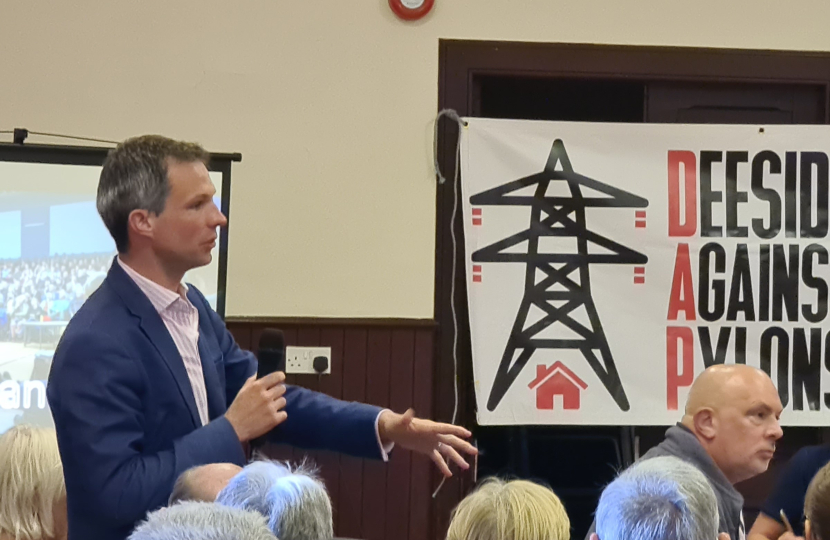
New lines to carry offshore wind power to substations should run underground rather than be carried by pylons, a North East MP has said.
SSEN Transmission is planning a corridor of giant pylons and substations between Kintore in Aberdeenshire and Tealing in Angus, in order to connect offshore energy to the grid.
The 70-mile, 400kV line is part of the National Energy System Operator’s (NESO) centralised strategic network plan to reach carbon net zero by 2050.
Andrew Bowie, Scottish Conservative MP for West Aberdeenshire and Kincardine, has co-signed a letter to the Energy Secretary Ed Miliband about the potential impact that a pylon-first agenda will have on countryside communities.
There are significant concerns from communities across the North East that the pylon route will spoil scenic countryside, restrict land use by farmers, and leave homeowners unable to move or secure a mortgage for houses beside pylons and substations.
Labour minister Miliband has repeatedly insisted that using underground cables rather than pylons to transmit energy around the country is a “more expensive” option.
But an official report into the East Anglia Network – where a large-scale pylon roll-out from Norwich to Tilbury is planned – has found that burying cables can be cheaper over the longer term.
Shadow energy minister Mr Bowie said:
“Studies now show that underground lines will be cheaper to maintain than massive pylons over the longer term. Cost was the main reason for the presumption to use pylons in the first place.
“We want the NESO to spend the next year planning out how it could use underground cables, and undersea where appropriate, without using pylons.
“No doubt there will be physical challenges to that in some areas, but it will be substantially cheaper for the government in the longer term.
“It will also address many of the concerns in my constituency and indeed across Scotland, that the race to net zero will mean an unjust transition for those who would pay the ultimate price for giant pylons being dumped in their garden or field.”
This article was originally published in Aberdeen Business News here.




